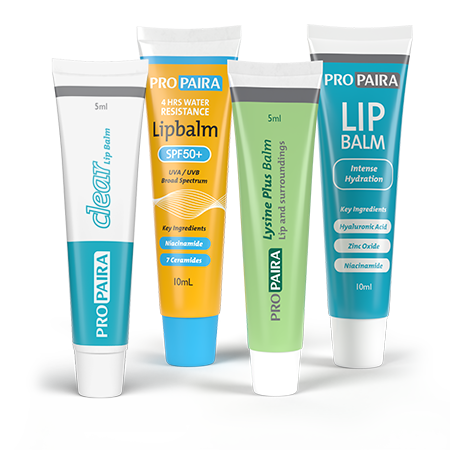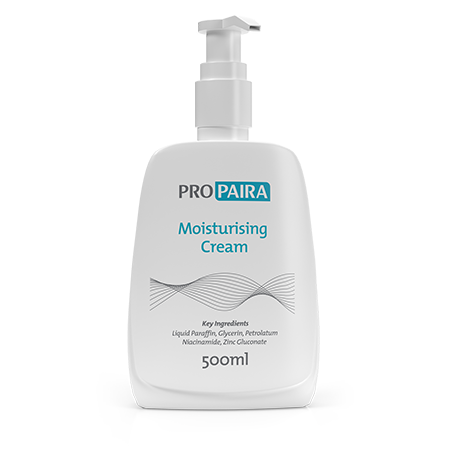Petrolatum
- Intensive Moisturisation
- Protects the skin barrier
- Hypoallergenic and non irritating
- Prevents chafing and friction
- Soothes very dry, cracked skin
- Non-comedogenic
Petrolatum is a well-established, safe, and effective skin protectant, functioning primarily as an occlusive moisturiser. By forming a physical barrier on the skin, it prevents moisture loss and helps reinforce the skin's natural barrier, maintaining its integrity. Petrolatum helps protect the skin by preventing irritation and damage from water or fat based substances. It also reduces the absorption of materials into the skin and lowers water loss, which helps prevent issues such as dermatitis. In premature infants with fragile skin, petrolatum-based ointments have been shown to lower the risk of infections and improve skin health.
Additionally, petrolatum penetrates the outer skin layer and speeds up skin repair after damage, making it useful for treating and protecting against irritation caused by moisture and other irritants. It is also often used in wound care because it creates a protective barrier over cuts, scrapes, and minor burns, helping to keep the area moist and free from infection. A moist environment is crucial for proper wound healing, as it promotes faster tissue regeneration and reduces the risk of scarring. This is why petrolatum is often recommended by dermatologists for post-surgical wound care and minor injuries.
Because petrolatum is inert, it does not react with other ingredients or irritate the skin, making it suitable for sensitive skin. It is also non-comedogenic, meaning it won’t clog pores, and is considered safe for use on all skin types.
References
Products that contain Petrolatum

